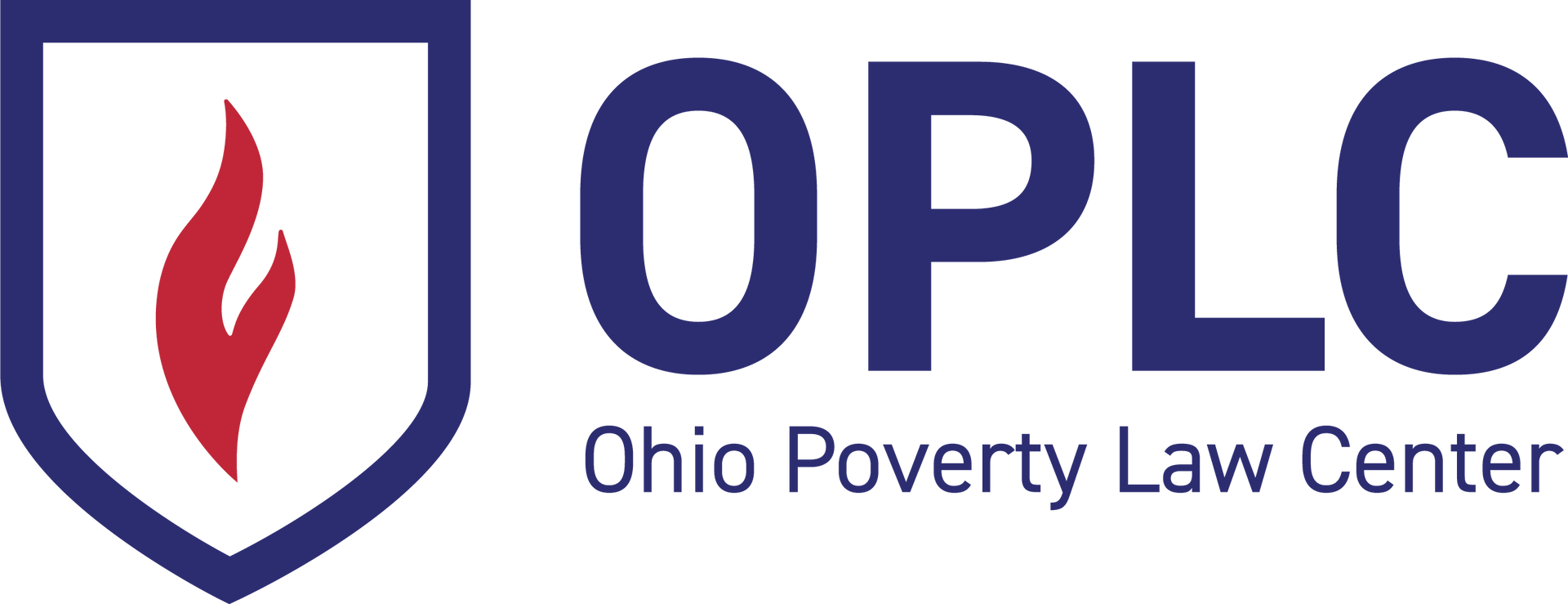MAY 2021 NEWSLETTER
The Senate Begins Deliberations on Ohio’s Next Two-Year Budget
The Ohio Poverty Law Center is asking the Senate to put its mark on HB110 by making further investments to support low-income Ohioans. Due to the ongoing COVID-19 pandemic, many Ohioans are still facing dire economic circumstances. Among the hardest hit by this crisis were individuals and families living paycheck to paycheck. Without savings and facing job losses, many of these Ohioans applied for unemployment compensation and public benefits for the first time.
As businesses regain strength, these adversely impacted Ohioans will play an important role in the state’s recovery. Overcoming the economic fallout will require supporting programs designed to address the needs of low-income Ohioans. OPLC has identified a list of priority items to be included in HB110. OPLC launched its #JusticeMakesCents campaign to share our key budget asks with lawmakers and the media. The campaign will highlight the following items:
- Broadband Internet Access: We support increased investments in the Ohio Residential Broadband Expansion Grant program to expand the infrastructure throughout the state as all Ohioans need broadband connectivity in order to work and learn remotely, apply for jobs, access benefits, and have access to telehealth. Access is just one consideration. We need to ensure that Ohioans can afford access too.
- Lead Poisoning Prevention: Children have been spending more time at home due to the pandemic and for low-income children that could mean spending time in a home with lead hazards. Additional funding will allow the SCHIP lead abatement program to reach more families before a child is lead poisoned.
- School Funding and Student Wellness: We are grateful that the Ohio House of Representatives revamped the school funding formula to provide additional resources to school districts with high poverty populations and low property wealth. However, we are asking that the Senate revert the student wellness and success fund to its intended purpose, rather than incorporating it into the school foundation formula.
- Prevention, Retention, and Contingency Program: This flexible county-administered program that provides one-time emergency assistance to working families to address unforeseeable financial emergencies that could impact employment, such as car repairs, has proven to be an invaluable but under-funded program during the pandemic and is worthy of greater support.
- Childcare: Childcare is critical to help families work. Raising the eligibility for publicly funded childcare to 200 percent of the federal poverty level will allow an estimated 300,000 more families to access childcare.
- Medicaid for Postpartum Mothers: Ohio should opt to expand Medicaid coverage to women for 12 months post-partum to improve the health of new mothers. Research shows that treatment for significant postpartum health risks such as depression, chronic health conditions, and breastfeeding support can be needed for longer than 60 days after delivery.
- Tax Cuts: We ask that lawmakers reconsider the across-the-board two percent income tax reduction and, instead, add a 10 percent refundable option to the existing 30 percent state Earned Income Tax nonrefundable credit. Any reduction in taxes should be targeted to those who need it the most to ensure economic recovery. This targeted tax policy helps support Ohioans working low-wage jobs support their families.
Broadband Expansion Bill Advances
House Bill 2 is on its way to becoming law. Passed by the Senate on April 27, with only a few changes from the House-passed version, the bill establishes the Ohio Residential Broadband Expansion Grant Program and appropriates $20 million in this fiscal year for initial grant funding. While we support the investment in expanding infrastructure, we will continue to advocate for improvements to the grant program in the budget bill which includes an additional $190 million appropriation.
Eviction Expungement Bill Introduced
A bill to create a statewide eviction expungement process, Senate Bill 158, was recently introduced by Senators Hearcel Craig (D-Columbus) and Stephanie Kunze (R-Hilliard). The bill allows an individual with an eviction record to apply to their local court to have an eviction expunged three years after the date of judgment. It gives the landlord an opportunity to provide any information as to why the eviction should not be expunged, and the court is to weigh this information against the interests of justice.
